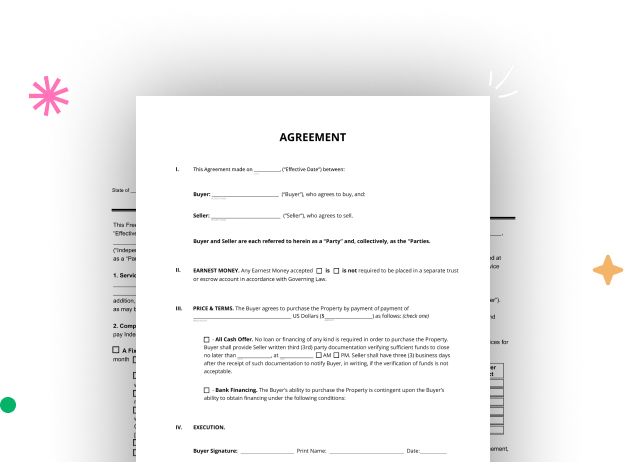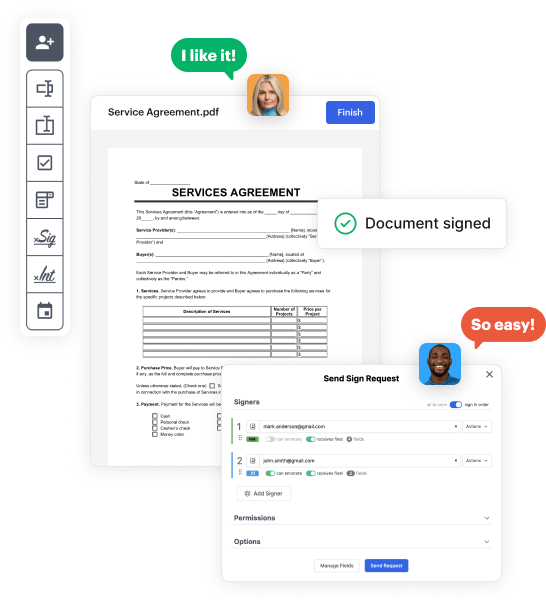

Start signining into your DocHub account. Explore the pro DocHub functionality at no cost for 30 days.
Once signed in, go to the DocHub dashboard. This is where you'll build your forms and manage your document workflow.
Click on New Document and select Create Blank Document to be taken to the form builder.
Use the DocHub toolset to add and arrange form fields like text areas, signature boxes, images, and others to your document.
Include necessary text, such as questions or instructions, using the text tool to assist the users in your form.
Alter the properties of each field, such as making them required or arranging them according to the data you expect to collect. Designate recipients if applicable.
After you’ve managed to design the North Carolina Quitclaim Deed Form, make a final review of your document. Then, save the form within DocHub, transfer it to your chosen location, or distribute it via a link or email.